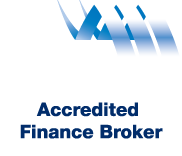If buying a new home were a marathon, settlement would be the finish line. It’s the bit where you finally take legal possession of the property – but there’s a little more to it than simply handing over the cash and picking up the keys.
Settlement is a process in itself. It involves activities that must be completed before you can begin unloading the removal van. These may include:
- conducting a pre-settlement (or final) inspection
- checking and signing the transfer documents
- registering the transfer of ownership with the relevant government agency
- making final payment to the seller.
Most people use a conveyancer or solicitor to assist them through the settlement process. Let’s unpack settlement a little further to help you understand what’s involved.
How long does settlement take?
It generally takes between 1 and 4 months – this is what’s known as the ‘settlement period.’ It begins on the day the contract of sale is signed and ends on settlement day (the date when ownership is officially scheduled to change hands). The exact length of the settlement period is something that’s agreed between you and the seller and is outlined in the contract of sale.
Pre-settlement/final inspection
This is important. It’s your chance to take a look around the property and make sure everything is in order.
Generally speaking, the property should be in the same condition as it was when the contract of sale was signed. The contract should specify which fittings and fixtures are included in the sale – and what can be removed by the seller.
When you’re doing your inspection, make sure that:
- there’s been no significant damage to the property since the contract was signed
- appliances, fittings and other functions are working (e.g. plumbing and pool pumps)
- all chattels (e.g. furniture) have been removed
- rubbish or building materials have been removed
- the house is in a reasonably clean state
- the gardens are in order and no plants have been removed.
Your conveyancer/solicitor will be able to provide more advice on what to look out for. They can also provide advice on what to do if you find any problems, so make sure to keep them in the loop.
The pre-settlement inspection usually happens during the week before settlement day.
What is settlement day?
This is the pointy end of the whole process – the day you take legal possession of your new home. The exact date is agreed between you and the seller and is then specified in the contract of sale.
What happens on settlement day?
There are a few legal and admin tasks that have to be done before the property is handed over to you. The good news is that you can let your conveyancer or solicitor manage all of these tasks for you – they’re the experts, after all.
If you don’t want to be present on settlement day, you don’t have to. Your conveyancer/solicitor can manage everything, including liaising with your bank and the vendor’s conveyancer/solicitor.
A precise time for final settlement will be set. This is the time when final payment will be made and you will take legal possession of the property.
Shortly before final settlement, your conveyancer/solicitor will provide you with a settlement adjustment statement. This will include pre-settlement adjustments such as stamp duty, any stamp duty concessions, and the First Home Owner Grant (if applicable). There may also be adjustments to compensate the seller for council rates, water, and body corporate fees.
The seller must pay all the property’s bills right up until the buyer takes possession on settlement day. But sometimes certain bills are paid in advance, which means the seller may be paying for services that extend beyond settlement day. When this happens, the seller is compensated through an ‘adjustment’ to the purchase price on settlement day.
You should check the pre-settlement adjustment statement carefully before advising your conveyancer to proceed with final settlement.
Final settlement
Once you give them the green light, your conveyancer/solicitor will meet with the vendor’s conveyancer/solicitor to finalise settlement. Your conveyancer/solicitor will hand over the cheque and the seller’s will provide the signed transfer documents.
The transfer documents include everything needed for a clear title to be handed over, which means the rights of third parties have been removed or released. We’re talking about things like:
- caveats (a type of legal restriction on the use of the property)
- previous mortgages over the property.
Once the money’s been handed over and the transfer documents are signed, you’ll finally get the keys to the property. Your conveyancer or solicitor will also need to get the transfer of ownership registered. This is done through the relevant government agency in your state or territory.
Getting your ducks in line
After all that searching, saving and planning, you wouldn’t be human if you didn’t get at least a little nervous about settlement day. Try not to worry too much.
All you can do is make sure you’ve done as much as you can to reduce the risks of things going wrong at your end. In other words – get your ducks in line. Plan, prepare, and give yourself plenty of time to get everything organised. For a start, make sure you have house and contents insurance cover and that the policy begins on or before settlement day, to ensure you are covered.
You may like to seek further advice from your conveyancer or solicitor on how to prepare for settlement day.
Once it’s done and dusted
Your conveyancer/solicitor will send you the settlement details, including a statement of adjustment to confirm how the funds were distributed. You should also receive confirmation from your lender, including details on your loan amount and repayments. Once it’s all done, you’re ready to pick up the keys, unload the couches, and settle into your new home.
To sum up
- Settlement is the process for transferring property from buyer to seller.
- It involves various legal, financial and administrative tasks.
- A conveyancer or solicitor can perform most of these tasks on your behalf.
- Settlement generally takes between 1 and 4 months as agreed between the buyer and seller.
One-stop finance
Finance Circle Group do much more than arrange finance for home loans. We can help to identify and secure commercial and asset funding to enable your growth, while at the same time preserving your operating cash flow.
We can be a one-stop-shop for your financing needs. Contact us to find out more about how we can help you with commercial and asset finance.
FEEL FREE TO CONTACT US FOR AN OBLIGATION FREE DISCUSSION.
Finance Circle Group
www.FinanceCircleGroup.com.au
The information on this website is general information only and is not intended to be a recommendation. We strongly recommend you seek advice from your financial adviser as to whether this information is appropriate to your needs, financial situation and investment objectives.


